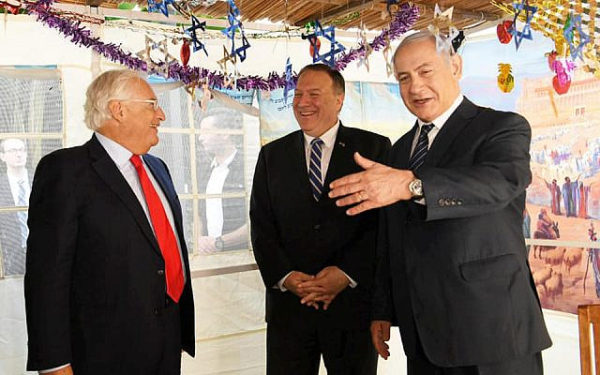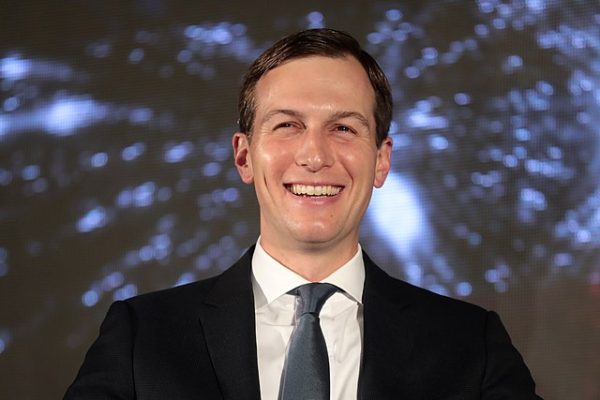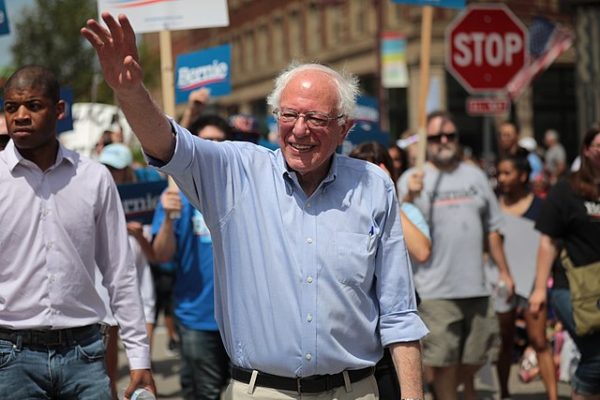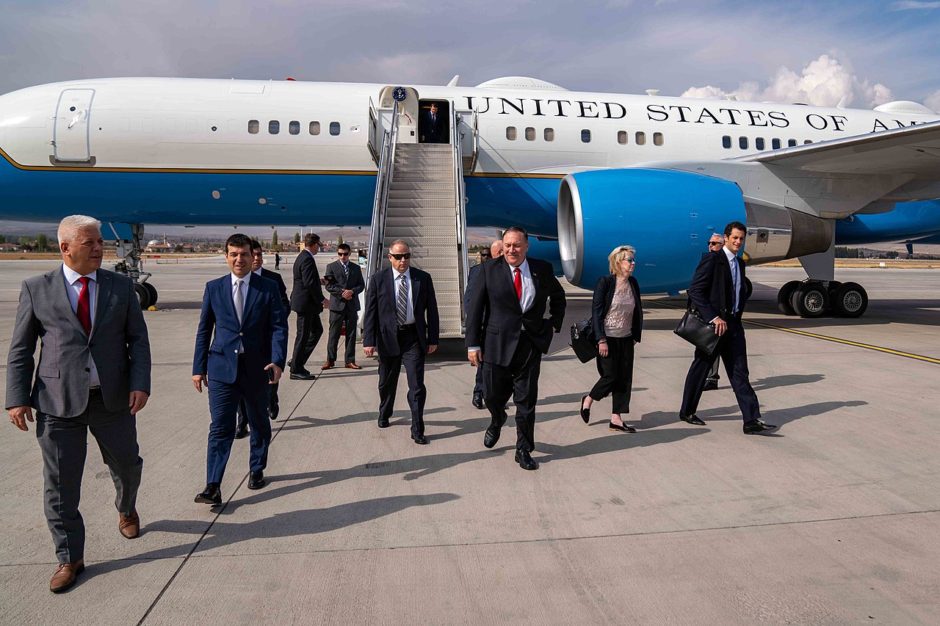Nothing good can come out of the announcement by Secretary of State Mike Pompeo on November 18 that the United States no longer considers Israeli settlements in the West Bank to be in breach of international law.

Washington’s shift, the latest in a series of announcements by President Donald Trump’s administration reconfiguring U.S. policy on Israel’s conflict with the Palestinians, likely will have a detrimental impact on the prospects for peace.
It will encourage Israel’s current right-wing government to expand settlements and annex land in the West Bank. It will further undermine the chances of a two-state solution, which is already on life support. It will heighten tensions between Israel and the Palestinians, whose leaders are barely on speaking terms. It will effectively doom the Trump administration’s long-awaited peace plan, the so-called “deal of the century” whose rollout has been repeatedly delayed due to the political impasse in Israel caused by the failure of the two major parties, Likud and Blue and White, to form a coalition government in the wake of two inconclusive elections in April and September.

Pompeo’s announcement, opposed by the major powers, the European Union, the Palestinian Authority and the Arab world, nullified a 41-year-old legal opinion by the U.S. State Department that settlements are “an impediment” to a resolution of the Arab-Israeli dispute, that the construction of settlements should be halted, and that settlements are incompatible with the advancement of a two-state solution.
Since the 1967 Six Day War, 130 settlements and some 100 unauthorized outposts have sprung up in the West Bank, the home of 2.7 million Palestinian Arabs. Israel built the settlements, inhabited today by close to 400,000 Israeli Jews, to lay claim to Judea and Samaria — the ancient homeland of the Jewish people — and to block the emergence of a contiguous Palestinian state. The left-of-center Labor Party launched the settlement project, but the Likud Party greatly accelerated the process. This year, plans for the construction of 8,337 units already have been approved, the most since 2013.
The International Court of Justice has ruled that settlements are contrary to international law and antithetical to the Fourth Geneva Convention, which prohibits an occupier from transferring parts of its own civilian population into the territory it occupies.
Israel and the United States ratified this convention, but the Israeli Foreign Ministry holds that settlements do not constitute a violation of international law because they are located “on legitimately acquired land which did not belong to a previous lawful sovereign” and sit on the sites of ancient Jewish villages.

In justifying the U.S. reversal, Pompeo said that the United States had “recognized the reality on the ground,” and claimed that “arguments about who is right and wrong as a matter of international law will not bring peace.” Pompeo said that Israeli courts should settle the issue, but he also said the imbroglio should be resolved by Israeli and Palestinian negotiators.
The Trump administration’s pivot was in keeping with its decision to dismantle and reframe the architecture of U.S. policy on the Arab-Israeli conflict.
Trump has issued mild criticism of Israel’s settlements, but he has basically accepted the shifting status quo created by Israel in the West Bank in the past 52 years. David Friedman, the U.S. ambassador to Israel and an avid supporter of settlements, exemplifies this position. Last June, he said that Israel has the right to annex some settlements. Last month, he acknowledged that Trump’s peace plan does not envisage the uprooting of even a single settlement. “We think that’s just a recipe for disaster,” he said, citing the political and military developments that occurred following Israel’s unilateral withdrawal from the Gaza Strip in 2005.

Jason Greenblatt, the outgoing U.S. peace envoy, is also well disposed to settlements, preferring to describe them as “neighborhoods and cities.”
Apart from its tolerance of settlements, the Trump administration has embraced key Israeli government positions.
In December 2017, Trump recognized Jerusalem as Israel’s capital without bothering to explain whether its recognition referred to the western Jewish sector or the mainly Arab eastern district (East Jerusalem), or whether he thought that Jerusalem’s final status should be settled in negotiations. Shortly afterwards, the United States transferred its embassy in Tel Aviv to Jerusalem. Last April, Trump recognized the Golan Heights as Israeli territory.
Trump’s one-sided moves have deeply alienated the Palestinians, who have rejected his peace plan and boycotted U.S. officials connected with it. Jared Kushner, the president’s senior advisor and son-in-law who has played a pivotal role in formulating the plan, is a persona non-grata in Palestinian circles.

As expected, Pompeo’s announcement was greeted joyously by Prime Minister Benjamin Netanyahu, who was indicted on corruption charges on November 21. Claiming that Pompeo’s comments reflect “historical truth,” Netanyahu reiterated his promise to annex the Jordan Valley, comprising about a quarter of the West Bank, should he succeed in forming a new government.
“The historic decision by the American administration hands us a unique opportunity to set Israel’s eastern border and annex the Jordan Valley,” declared Netanyahu, who has gradually backed away from a two-state solution and called Washington’s new policy “an achievement that will stand for generations.”

Ayelet Shaked, the head of the New Right Party, as well as settlement leaders, have urged Netanyahu to apply Israeli sovereignty to all the settlements.
Washington’s new approach to settlements has been rejected by the principal candidates running for the Democratic Party’s presidential nomination.
Joe Biden’s campaign spokesman, Andrew Bates, said it “harms the cause of diplomacy, takes us further away from the hope of a two-state solution, and will only further inflame tensions in the region.”
Elizabeth Warren was just as critical. “Another blatantly ideological attempt by the Trump administration to distract from its failures in the region,” she said. “Not only do these settlements violate international law — they make peace harder to achieve. As president, I will reverse this policy and pursue a two-state solution.”

Bernie Sanders believes that “Israeli settlements in occupied territory are illegal.” As he put it, “This is clear from international law and multiple United Nations resolutions. Once again, Mr. Trump is isolating the United States and undermining diplomacy by pandering to his extremist base.”
Pete Buttigieg echoes this view: “The Trump administration’s statement on West Bank settlements is not only a significant step backward in our efforts to achieve a two-state solution to the Israeli-Palestinian conflict, it is the latest in a pattern of destructive decisions that harm our national interests.”
Steny Hoyer, the Majority Leader in the House of Representatives, has disclosed he will table a resolution before the end of this year endorsing a two-state solution.
It’s clear that the issue revolving around settlements and a two-state solution engenders profound passions.
